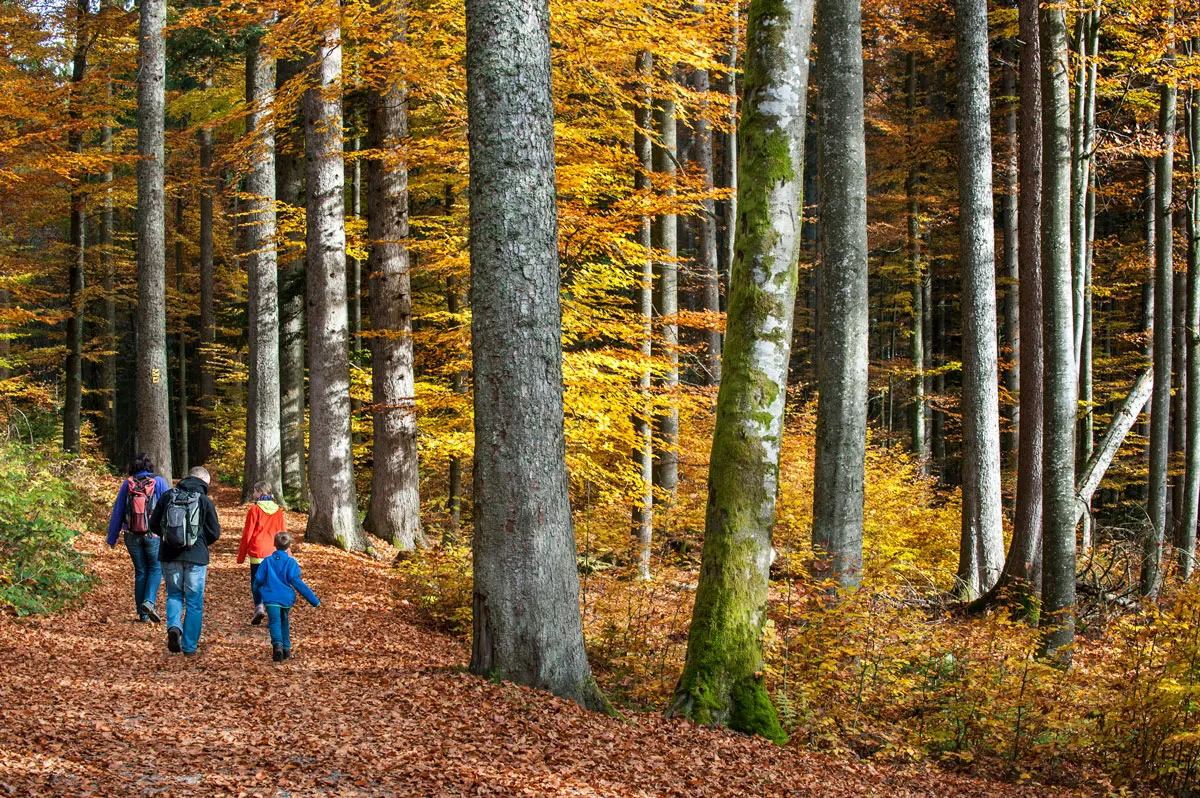Hundreds of years ago, most of Britain was covered in woodland, but our use of this land over the years has been so extensive that during the 19th century, as smoke-coughing chimneys shot up like leylandii in the factory towns, forest cover in the UK dipped below 4%.

More recently though, scientists and environmental psychologists (particularly from Japan - a country that records a staggering rate of forest cover at 67%), claim to have to discovered some of the magic that woodlands can work on us.
In Japan, the practice being investigated is called shinrin-yoku, which translates as ‘forest bathing’ (all that is necessary to ‘bathe’ is that you spend some time soaking up the woodland atmosphere). Scientists are tracing the effects that time spent in forest environments has on the body and mind, with early trials suggesting positive results.

So why are forests so good for us?
Japanese research conducted between 2004 and 2012 shows that essential oils called phytoncides are used by trees to protect against diesease or insects. The research suggests that breathing in phytoncides can help improve immune-function.
Trials run in the last few years have also demonstrated that forest environments interact with our bodies with real impact, with the reduction of stress being one of the most common benefits. One study found lower concentrations of cortisol in forest bathers. Cortisol is a stress hormone that encourages the storage of abdominal body fat, suppresses the immune system, and can also contribute to conditions such as heart disease.

A 2007 Japanese study also found that exposure to woodland spaces had a long-lasting effect on the immune-system, helping increasing the number of white blood cells known as human natural killer cells (NK), with the effects documented to last for between seven and 30 days after the forest visit had ended.
Dr Chorong Song, an associate professor at the Center for Environment, Health and Field Sciences at Chiba University in Japan outlined another significant health benefit of going wild in the woods. Dr Song's researchfound that participants with high ‘blood pressure and pulse rate demonstrated a decrease after walking in a forest area, whereas those with low initial values showed an increase.

In the UK, although we have been slower to prioritise research into woodlands and wellbeing, it is ahead with investigations into the restorative and recuperative powers of nature more broadly. Research by the ‘Green Exercise’ hub at the University of Essex demonstrates the sympathetic relationships that exist between our bodies and their environments. The team at the Green Exercise Hub conducted research measuring which particular senses seem most important for the ‘green effect’, with the smell of phytoncides proving particularly key to aiding the immune-system.
While Britain's forest cover rate has improved since the 19th century (it has crawled back to 13%, according to figures by the Forestry Commission) it remains only a fraction of what Japan boasts. This could explain why there has been less specifically woodland-focused research in the UK.

As children, so many of our bedtime stories were set deep in woodland, where magic and mystery where the norm; the forest was a place where anything seemed possible. It may then come as no surprise that forest time was found to improve sleep conditions for individuals with sleep complaints.
The science may continue to offer some jaw-dropping results encouraging us to rethink how we use our forest environments. A number of studies have demonstrated that empathy for the environment increases drastically when we actually spend time in natural places, rather than merely thinking or reading about them. The more of us that head to the woods to seek out its freely available miracle-cures, the more likely these places will be preserved for future generations.
Over the years, our model of consumption brought about the destruction of about 90% of Britain’s woodland. But with shinrin-yoku, this model starts to breakdown because, for forest bathers’, demand can never really outstrip supply. Instead, it seems demand, through empathy, is the best tool we have to ensure the woodlands’ longevity.

Reasons to choose a forest walk
A forest walk can help enhance your mood and increase feelings of calmness. However, it may also kick-start a number of physical and psychological effects that contribute to health and wellbeing, these can include:
- relieve symptoms of high (and low) blood pressure
- reduce levels of the stress hormone cortisol
- may help improve sleep quality
- may contribute to better appetite control
- research also suggests that individuals are more likely to ‘connect’ to others
Vybarr Cregan-Reid teaches English and Environmental Humanities at the University of Kent and is the author of Footnotes: How Running Makes us Human (Ebury).
